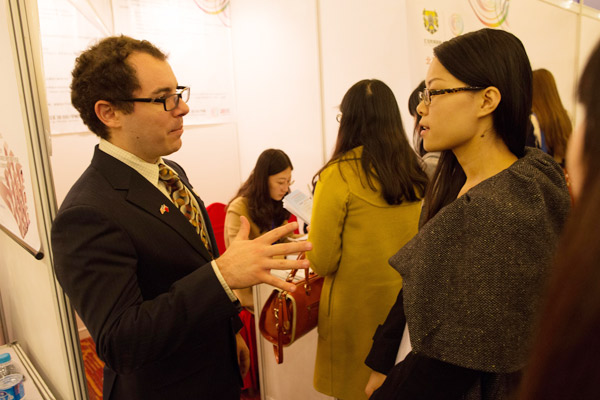Foreign-invested companies losing luster
Updated: 2014-08-25 01:21
By Luo Wangshu and He Dan(China Daily)
|
|||||||||||
A 30-year-old junior researcher at Procter & Gamble is unsure whether to stay with the company.
"I get paid well here, but it's hard to see my future in a creative way," said the researcher, who did not want his name used.
|
 |
|
 |
"I am looking for more challenging and creative work," he said. He is applying for jobs with private companies and is looking for more freedom rather than "unlimited regulations and rules to follow".
In the past decade, foreign-invested companies have encountered difficulties attracting Chinese job seekers like this one.
According to employment reports released in late July and August by human resource companies ChinaHR.com and Horizon Research Consultancy Group, State-owned enterprises are now the most attractive employers for Chinese university graduates.
ChinaHR.com has conducted "best employer" surveys in China for more than 10 years. Its reports show foreign-invested companies were initially highly regarded, accounting for nearly 70 percent of the top 50 best employers in 2004. However, that perception declined and reached its lowest point in 2010, when less than 10 percent of respondents selected foreign-invested companies in the top 50.
This year, about 30 percent of the top 50 best employers are foreign-invested companies, ChinaHR.com reported.
The report from Horizon showed that foreign-invested companies accounted for 24 percent of the top 50 best employers in 2014, down from 38 percent last year.
Ma Ying, head of talent acquisition for the Human Resources Department of Siemens China, said the scarcity of talent is a general difficulty in China, and not only in foreign-invested companies.
"All types of companies, including SOEs and private businesses, have begun to notice a shortage in the market," Ma said.
Chinese job seekers now have more options, she said.
Ma said Siemens is aware that foreign-invested companies are less attractive for jobseekers than they were 10 years ago.
However, she believes each type of enterprise has its own solutions.
"For instance, if an employee is used to the atmosphere in foreign-invested companies, he or she might think twice about entering a private or State-owned company," Ma said.
Related Stories
Grads must face job market reality 2014-08-20 07:11
Higher degree graduates face battle in job market 2014-07-10 09:57
Recent graduates lower expectations in tight job market 2014-07-03 07:40
China's job market not for losers 2014-07-02 07:54
Athletic ability boosts graduates in job market 2014-06-23 06:58
Today's Top News
Leaders clash in debate before Scotland vote
US hypersonic weapon destroyed after launch
US prepares military options in Syria
Aussie MP apologizes to Chinese
Foreign-invested firms losing luster in China
British Ebola patient back to London
Is Shaolin fighting for money?
Donglian's shift from coal to travel pays off
Hot Topics
Lunar probe , China growth forecasts, Emission rules get tougher, China seen through 'colored lens', International board,
Editor's Picks

|

|

|

|

|

|






